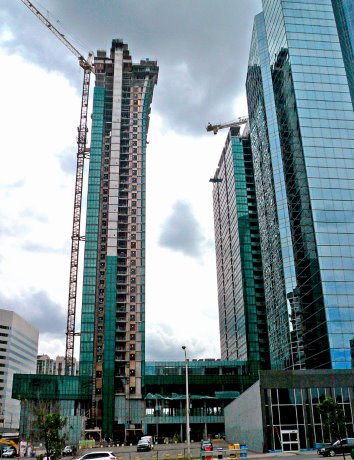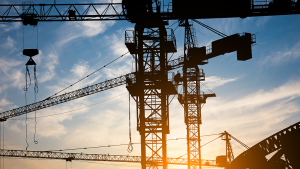A new report shows it is taking longer to get condo projects approved in Toronto, with the delays causing uncertainty and risk for developers, slowing down the supply of new units coming to market and resulting in lost tax revenue for the city.
The report, called the Evaluation of Tall Building Construction Permitting Process in Toronto, was unveiled recently by the University of Toronto’s (U of T) Building Tall Research Group and the Residential Construction Council of Ontario (RESCON).
"Detailed information for 174 tall residential towers in the city of Toronto were collected and their permitting process was analyzed based on the duration and the authority that provided the approvals," explained Arash Shahi, research manager at the Building Tall Research Centre, a group within U of T’s Civil Engineering Department. "This report summarizes some of the challenges within the current system and suggests a number of recommendations to improve the existing practices."
The report looks at the Official Plan and zoning bylaw amendment approval process of 174 new condo projects in Toronto between 2006 and 2016, and found that the time to complete the approvals process has more than doubled in the past 10 years.
Paul De Berardis, RESCON’s director of building science and innovation, explained the nine-month approvals target, as outlined in the Toronto Development Guide, actually took three-and-a-half years on average in 2016.
"It just brings a whole level of uncertainty into the process," he said. "A builder/developer will actually not know when they will get their approvals process so they don’t know when they’re going to need their architect and engineer to move forward with design, how they can cue and schedule manpower and subcontractors and not only that, how it ties in with other projects they have on the go. Most of our membership, they’re typically building several buildings at the same time."
It also ties up resources and funds because developers don’t know when they will be able to start construction, he added.
"It puts a lot of risk on the developer — they are spread thin because they now take on more projects knowing that they don’t know which one is going to get through the approvals process first," said De Berardis. "It’s kind of like a lottery system. They take a bit of a gamble hoping that some will go through the approvals sooner than others just so they can have a continuous cue of projects ready to go and not have a lull or downtime in between projects."
RESCON partnered with U of T to gather the data because there is no actual documentation as to just how long the process was taking for a typical highrise development in the city of Toronto, De Berardis said. The data was collected from city hall and the Ontario Municipal Board, catalogued and a database was created.
"That’s how we were able to benchmark the timeline and that really provides some evidence to just how long it’s taking. It’s not just a couple months delay, we’re talking a magnitude of years in terms of delays, so we really wanted to highlight that in the industry because no timeline had been put towards this delay issue before," he said.
The report suggests the lengthy approvals process impacts the supply of housing in Toronto.
"One of the many reasons contributing to the increasing price of housing units is the imbalance between the supply and demand," said Shahi. "By streamlining the permitting process and addressing the existing process inefficiencies, the supply of new units could be increased, which in turn may contribute to balancing the housing market."
Delaying the construction of tall residential buildings could mean lost property tax revenues to the city, which, according to the report, could be well over $1 million per year per tower.
"Not only are you holding back supply, you are also holding back residents which would be enrolled on a property tax revenue basis," said De Berardis. "So the city, with their own processes, is inhibiting their own property tax collection revenue."
RESCON is teaming up with U of T for the second phase of the report which will examine the causes and what can be done to improve it from an industry perspective. RESCON also plans to bring the report forward at a roundtable discussion on the Fair Housing Plan with the Ministry of Housing.
"It shouldn’t be up to third party independent research to discover just how slow our municipal system is," said De Berardis. "It was very difficult to get a lot of the data in order to do the research, so that goes back to the openness and transparency in the system. It would be great if this data was more relevant and readily available."
Shahi added this is only a first step.
"Currently, we are evaluating the construction permitting process in some of the other cities around the world, including Vancouver, New York and Singapore," he said. "The next phase of this research will be the documentation of best practices from these cities, which could be implemented in the City of Toronto in future."
Project delays cost Toronto in more ways than one
TORONTO — As projects starts are delayed, the City of Toronto misses out on the collection of potential property tax revenues, the recent Evaluation of Tall Building Construction Permitting Process in Toronto report shows.
The study notes that a hypothetical 50-storey condo with 500 units, with an average unit cost of $470,000, according to Business Canada 2016 figures, would generate about $3,200 of property tax per unit – or $1.6 million per building in just one year.
With an approvals delay of almost three years, that would represent about $5 million in lost property tax revenue for the city, states the report.











Recent Comments
comments for this post are closed